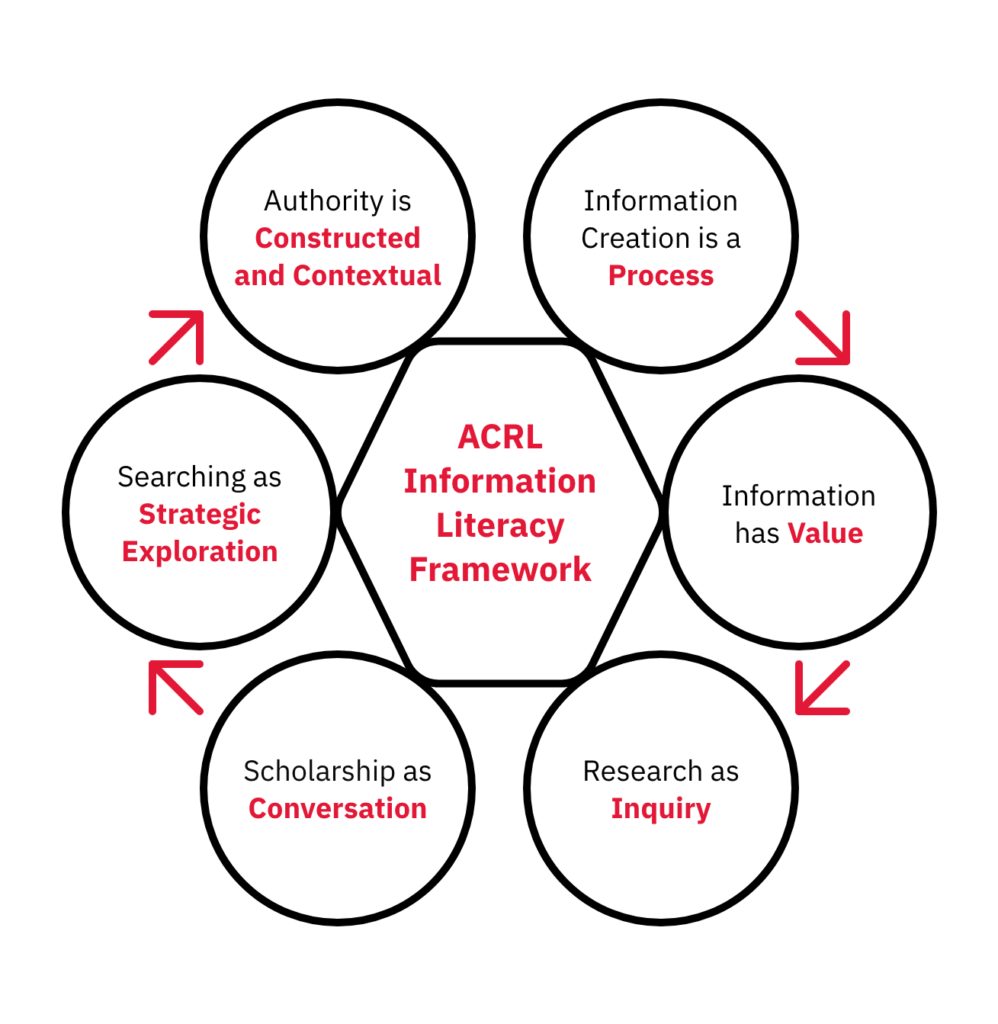Information Literacy & Curriculum
Renewing or innovating your curriculum? Consider information literacy.
Integrating information literacy (IL) into curriculum is essential for equipping students for the vast and evolving information landscape they will encounter at York and beyond. Students who are information literate are able to access, analyze, critically evaluate, and effectively communicate information, and are set up to succeed in their academic, professional, and personal lives.
Much like research, teaching and learning information literacy is a process, and works best when introduced throughout a student's academic career. Librarians are experts in information literacy and can assist with integrating IL into curriculum at the course, program, and degree levels.

York University Libraries (YUL)
York University Libraries are your partners in information literacy. Explore the YUL website and find assistance with integrating IL into your curriculum.
The ACRL Framework
The ACRL Framework for Information Literacy for Higher Education is made up of six frames, each outlining a particular core and interconnected concept of information literacy. Each frame contains a concept, knowledge practices, and dispositions. The framework was developed intentionally to provide flexible options for implementation and is not to be considered prescriptive or exhaustive.
"At the heart of this Framework are conceptual understandings that organize many other concepts and ideas about information, research, and scholarship into a coherent whole." -ACRL Framework
Explore the ACRL Framework for Information Literacy Sandbox for additional resources, materials, and inspiration for incorporating the framework into your teaching in collaboration with York University librarians.

Information Literacy Learning Outcomes
Creating learning outcomes centered around information literacy at the assignment, course, and program levels is one way to integrate IL into your curriculum. When developing IL learning outcomes, it is best to be specific and take into consideration the academic context of the students (e.g. area of scholarship, information needs past graduation).
A single assignment or course will not be able to cover all of your IL learning goals, so LO mapping at the program level is recommended. If you are new to IL, the ACRL Framework can also be used to help you map your learning outcomes to the ACRL IL threshold concepts (see example below).
Read more about learning outcomes and LO mapping, and contact your librarian for help with building IL specific LOs.
| Mapping IL Learning Outcomes & ACRL Framework | Authority is Constructed & Contextual | Research as Inquiry | Information has Value | Searching as Strategic Exploration | Information Creation is a Process | Scholarship as Conversation |
|---|---|---|---|---|---|---|
| LO 1 | X | | | | | |
| LO 2 | | X | | X | | |
| LO 3 | | | X | | |
